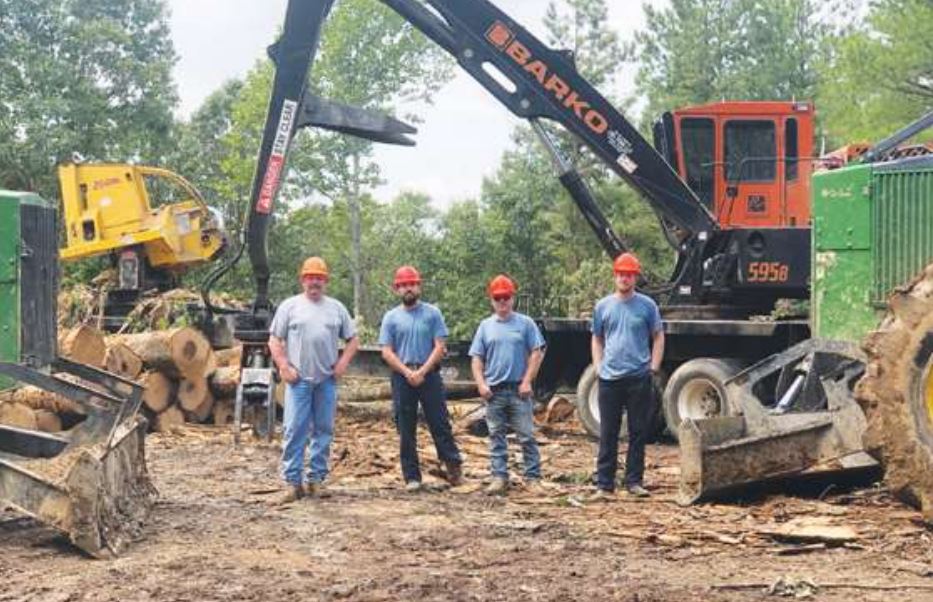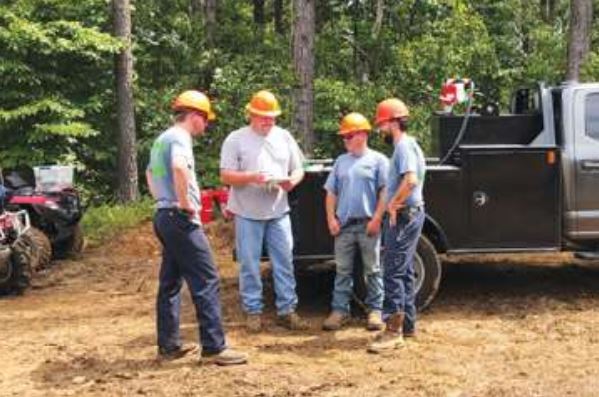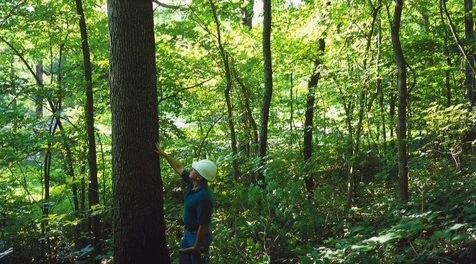The Importance of Education in Logging
Timber harvesting operations require a high-level of trust between loggers, landowners, and others involved in the project. ISC works hard to foster partnerships with loggers across the entirety of our log buying area.
Loggers who are enrolled in our ‘Preferred Supplier’ Program are also eligible for a premium on their white oak logs when harvesting from certified sources – an important way to reward those committed to sustainability efforts. Our loggers can become preferred suppliers through education, holding active training status, and a commitment to use best management practices when harvesting. Their willingness to accomplish those extra steps- often beyond that required by state and local laws- acts as a filter to ensure that we are working with the best operators in their respective location.
It’s also typical for loggers to have a region in which they work, and with the varied nature of the landscape, they have an intimate understanding of local markets, working conditions, landowners’ concerns, and more. Take for instance, Shannon Jarman out of middle Tennessee. Loggers like Shannon make us aware of opportunities in their locations and we send them work as we develop new prospects. This synergetic connection leads to developing richer relationships that deepen trust.
ISC recently caught up with Shannon who was once recognized by the Tennessee General Assembly as Master Logger of the Year. That honor is a testament to his commitment to sound and sustainable forestry practices, along with his ability to work well and communicate with landowners. Keep reading to learn more about his journey into the business.

Shannon Jarman
ISC: How long have you been logging?
Shannon: Essentially my entire life. I can remember from a very young age, my father logging with mules. I started logging on my own in 1999 and started my company in 2012.
ISC: What sparked your interest in logging?
Shannon: I love being in the woods, having independence at the job and it just gets in your blood. Once the sawdust is in your veins, you can’t do anything else. Every day is different.
ISC: How many trees do you fell on an average day?
Shannon: With one crew, we can cut 80 to 90 logs per truck.
ISC: Do you log year-round?
Shannon: If the weather allows. We aren't able to get out there if the ground is too wet.
ISC: Can you share some insights into sustainable logging practices?
Shannon: Overall values need to be assessed and a good plan in place for the landowner prior to harvest. We look for and cut mature trees but are mindful to leave enough for seed production and soil replenishment. Periodic selection harvest seems to work best for most properties. Harvesting every 10 to 15 years on a property provides the owner with periodic revenue and allows oak forests to thrive.
ISC: What safety measures are crucial in the logging profession?
Shannon: Chainsaw training is vital for those using the saw. Thankfully training is readily available from many sources and well worth it. Making sure equipment is well-maintained (chainsaws have working chain breaks, equipment hydraulics well maintained, all safety equipment installed and properly working). Also, having and using seatbelts in equipment.
ISC: What challenges do loggers commonly face in their work?
Shannon: Equipment costs have almost doubled in the last decade and financing is not as readily available. That and preparing the next generation of loggers.
ISC: What advice would you give to someone interested in pursuing a career in logging?
Shannon: Don’t get discouraged. Hang in there. There will be tough days but with good planning you can make it through those and have a great career.
ISC: What's the most rewarding aspect of being a logger?
Shannon: Knowing you have made a difference for the people who own the land.
ISC: Can you describe a particularly memorable experience or moment while working as a logger?
Shannon: There are too many to select one. I am amazed at the power of nature on a daily basis. Every logger has near-misses (limbs that fall out of trees unexpectedly, trees that don’t fall the way you expect). Every experience has added lessons that can be applied and have made me a better and safer logger.

Shannon with his crew and equipment

Shannon hosting safety meeting for the crew
To learn how to become a Preferred Supplier, contact:
Dominic Stelzer | Sustainability Manager
C: 573.489.7971
Dominic.Stelzer@independentstavecompany.com
share this post

